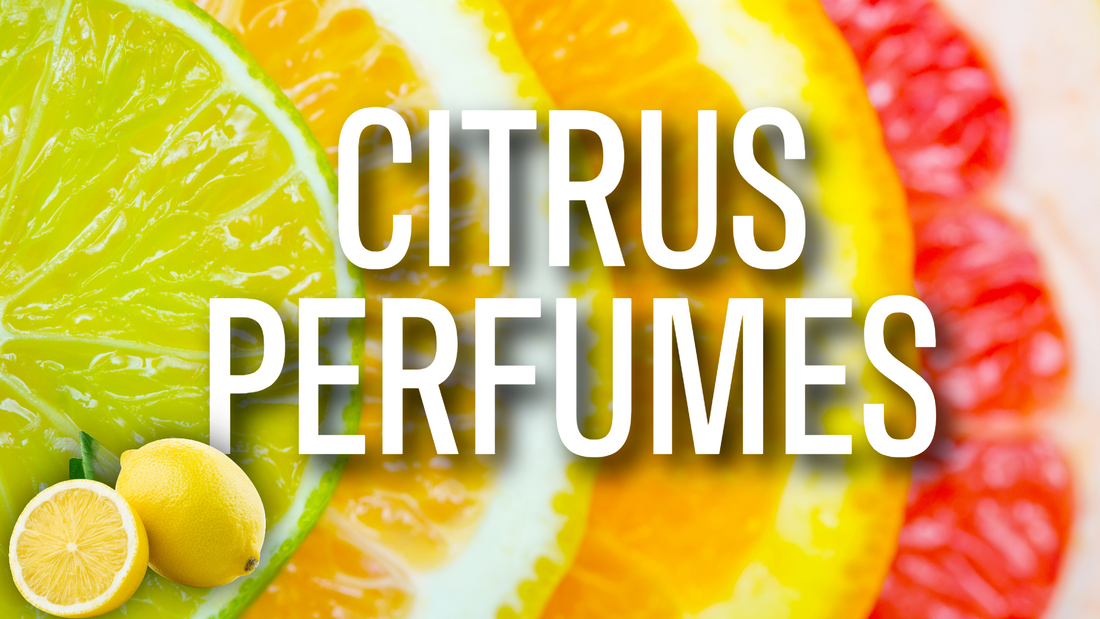
Citrus Fragrances
Share
There’s something undeniably uplifting about a burst of citrus. In perfumery, citrus fragrances have long been associated with freshness, energy, and a sense of lightness that few other scent families can match. Whether it's the crisp zing of bergamot, the juicy brightness of orange, or the green sharpness of grapefruit, citrus notes have a way of cutting through the noise and bringing clarity—not just to a fragrance, but to your mood.
The roots of citrus in perfumery go back to some of the earliest fragrance traditions. In ancient China and the Mediterranean, citrus oils were prized for their cleansing, healing, and aromatic properties. But it was during the 18th century in Europe that citrus truly took center stage with the creation of Eau de Cologne—a refreshing blend of lemon, orange, neroli, and herbs. Originally crafted in Germany and later embraced by royalty across France and Italy, Eau de Cologne was not just a perfume—it was considered a tonic, meant to invigorate the mind and purify the body.
Because natural citrus oils evaporate quickly, early perfumers had to layer them with other ingredients like musk, lavender, or woods to give their creations longevity. This technique became a hallmark of classic citrus compositions, allowing the brightness of citrus to open the scent, while deeper notes grounded it. Even today, many perfumers use citrus as a top note to create that unmistakable clean, fresh first impression.
Citrus perfumes are loved across cultures and generations for their versatility. They're equally at home in a minimalist summer splash or a sophisticated unisex blend. In hot climates, especially across Asia, the Middle East, and the Mediterranean, citrus remains a go-to for its cooling, revitalizing effect. In fact, some of the best-selling fragrances in warm-weather markets are citrus-based, because they feel light, non-intrusive, and effortlessly wearable.
What makes citrus fragrances so universally appealing is their connection to cleanliness, energy, and even happiness. Psychologically, citrus scents—especially lemon and orange—are known to trigger feelings of positivity, alertness, and well-being. That’s why they’re often used not just in perfumes, but also in personal care and home products. But in fine fragrance, citrus is elevated—blended with everything from white florals and aromatics to resins, spices, and woods.
In modern perfumery, citrus is seeing a creative revival. While traditional citrus scents focused on sharp, clean brightness, today’s niche citrus perfumes explore the bitter rind, the green leaves, or the zesty pulp. Ingredients like yuzu, blood orange, and calamansi are becoming more common, adding new dimensions to the classic citrus structure. Some perfumers are even pairing citrus with unexpected notes like leather, tobacco, or aquatics for a more layered, modern appeal.
A standout aspect of citrus-based perfumes is how well they work in genderless compositions. They often avoid overly sweet or powdery finishes, making them a favorite for those who want something fresh, elegant, and easy to wear daily. A good citrus perfume is crisp but never sharp, bright but not juvenile—it walks the line between simplicity and sophistication with effortless ease.
In a world of heavy gourmands and dense orientals, citrus perfumes offer something rare: clarity. They’re the olfactory equivalent of a deep breath, a clean slate, or morning light through a window. Whether you're spritzing on a classic bergamot cologne or exploring a bold new twist with lime zest and metallic woods, citrus will always feel like a return to simplicity—refreshing, timeless, and beautifully alive.
